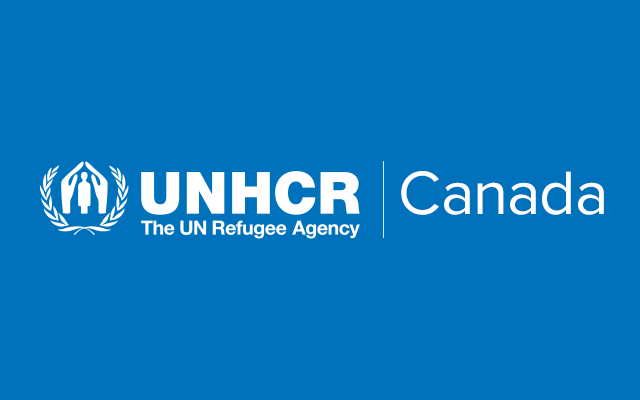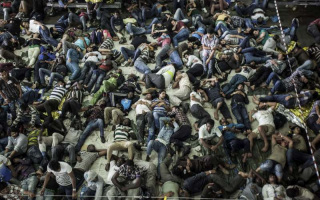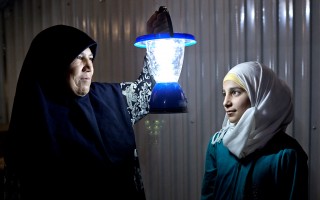This is the third Ramadan in a foreign country for a Syrian refugee family living on the outskirts of Dohuk in the Kurdistan Region of Iraq. In the kitchen of a small three room apartment, eggplant and potatoes are being fried for Maqlooba, a layered dish of vegetables, chicken and rice eaten in Syria and across the Levant.
“Everything we make is exactly what we would make at home,” says Shadiya, 25, resting on the living room sofa. She’s eight months pregnant with her first child, and smiles as she explains, “the only difference is we are fewer people now, at home there would be 20 people just in the kitchen.”
Shadiya and her husband Hozan, both Syrian Kurds from Qamishli, met at university in Damascus where they lived until the crisis erupted in 2011. They fled to the neighbouring Kurdistan Region of Iraq the following year. For the past three years they’ve shared an apartment with Shadiya’s sister’s family in a block of low cost housing on the city’s periphery.
Siblings, nieces and nephews fill the living room sofas as Iftar nears, but the family’s older generation is notably absent. Both Shadiya’s and Hozan’s parents are still in Syria. They were too old to make the long journey from northern Syria into Turkey and back down to Kurdistan Region of Iraq. 7.6 million people are displaced inside Syria.
No one has big meals anymore, food has just become too expensive.
“During Ramadan in our village everyone knew each other so each day one house would cook for everyone else. Hozan speaks to his parents almost every night after Iftar and they describe similarly muted celebrations at home. “No one has big meals anymore, food has just become too expensive. They can buy vegetables and rice, but that’s it.”
Life is also difficult for Shadiya and Hozan in the Kurdistan Region of Iraq. Because they’ve chosen not to live in a camp they don’t receive any kind of aid. And with the economic situation in the region, it’s becoming more and more difficult to find work. Shaydiya’s brother is one of the only family members with a full-time job. He works as an assistant to a generator operator and brings home about $15 a day which the family shares to pay for rent and food.
When Hozan first moved to this apartment tower with his family three years ago there were more than 50 other Syrian families living here, but now there are less than 20. “They couldn’t afford the rent, so they had to move to the camps,” he says shaking his head, “we never lived in a camp and I hope we will never have to move.”
As of June, the Kurdistan Region of Iraq is hosting over a million internally displaced people, in addition to almost 240,000 Syrian refugees. As of July over four million Syrians had been registered as refugees.
We never lived in a camp and I hope we will never have to move.
Plates of roasted chicken, rice, stacks of flat bread and bowls of cucumber and tomato salad are arranged around the tray of Maqlooba in the center of a plastic sheet laid out on the floor. The families all sit down together with the youngest children in their parents’ laps to share the meal. Hozan’s brother in law jokes about who’s turn it will be next to cook for everyone, “on the day no one fasts, that’s the day I’ll do all the cooking,” one of the young men offered, laughing between bites.
After the meal, the men moved to the living room to watch a Syrian television series, smoke cigarettes and drink tea while the women washed dishes.
“It’s so sad to be away from your family,” Hozan said, sitting with his brothers in law and playing with one of his nephews. “But these people are also my family,” he added smiling, “I think all Kurdish people are my family.”
Story By: Susannah George





